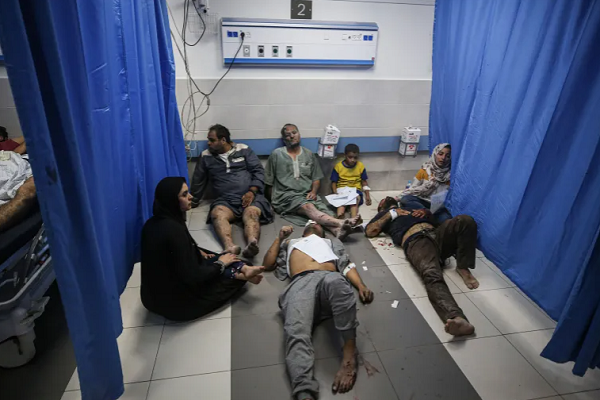Doctors in Gaza hospital face tough choices amid scarce resources

The European Hospital, in the southern city of Khan Yunis, was intended for only 240 people but is currently treating around 1,000 patients, while many displaced people are also sheltering in its corridors, they said, according to a report by Reuters.
“Many days we have to prioritise between patients,” Plastic Surgeon, Ahmed El Mokhallalati, said, adding this meant focusing on those with a more likely chance of surviving and neglecting those “in a bad situation and (needing) a lot of care”.
“We lost many patients because we were unable to provide the service. At one point, we were not taking any patients with extensive burns because we knew the capacity in the ICU (intensive care unit) can’t deal with this.”
Mokhallalati described performing amputations on patients who had already lost their entire families, adding that he often burst into tears “because we are unable to provide the care (in) the way it is needed”.
Most of the enclave’s hospitals have been shut, with some of them directly hit or raided, and those still functioning are under growing pressure as Israeli troops push closer.
Thaer Daifallah, a facial surgeon, complained of shortages of even the most basic items.
“I would say healthcare is in complete collapse and it will take years to get it back to normal,” he said.
Read More:
Nearby hospitals, such as Al-Amal, which has been hit several times in recent weeks, may struggle to stay open, Tommaso Della Longa, spokesperson for the International Federation of Red Cross and Red Crescent Societies, said on Tuesday.
“I don’t want to even think about the possibility of having Al Amal close in the coming days, but the reality is that if the situation will not change, it will be very difficult to continue activities in the hospital,” he told a news briefing in Geneva.
The brutal Israeli attacks on the besieged Gaza Strip since October has killed at least 27,585 people, mostly women and children, and left more than 66,978 other injured.
Source: Agencies



